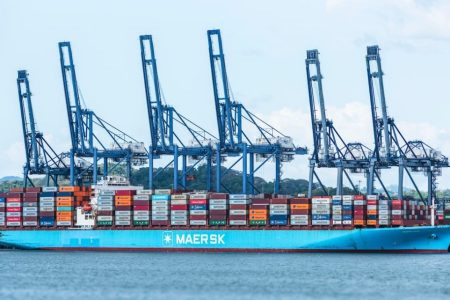The Macau Association of Banks (ABM) wants to create an alliance with Portuguese-speaking banks to “improve the city’s links with China and Portuguese-speaking countries”.
The association wants to create an alliance with banks from Portuguese-speaking countries, ABM vice-president Sam Tou told Lusa Portuguese news agency.
ABM’s new board has created a commission dedicated to financial services between China and the Portuguese-speaking markets, led by Banco Nacional Ultramarino (BNU), which is part of the Caixa Geral de Depósitos group.
The new commission also includes the Macao branch of the Bank of China, which is present in Portugal, Brazil, Angola and Mozambique; the Well Link Bank, which incorporated Novo Banco Asia; and the Macau branch of Haitong Bank, the successor of Espírito Santo Investment Bank.
Sam Tou said that the commission wants to improve Macao’s links with China and Portuguese-speaking countries and become a platform for financial services”.
These objectives will include the creation of an alliance that brings together banks from Macao and Portuguese-speaking countries.
Sam Tou also said that “ABM has been working actively with its counterparts in Portuguese-speaking countries and has established a very close network of contacts and cooperation”.
Sam Tou noted that ABM signed a cooperation agreement in May 2019 with associations of banks in Portugal, Mozambique, Guinea-Bissau and São Tomé and Príncipe.
The agreement created an alliance to support the launch in China of financial products from Portuguese-speaking countries and to offer financial services to Chinese companies interested in investing in Portuguese-speaking markets.
Despite the obstacles created by the pandemic, Chinese interest in “trade and economic cooperation and investment” in Portuguese-speaking countries “has not diminished”, deputy director general of the Bank of China branch in Macao told Lusa.
Cai Chun Yan said that “a few decades ago” Chinese companies ventured “alone” in markets such as Portugal, Brazil and Angola.
But currently, “even some large domestic groups” prefer to go through Macao, taking advantage of “the knowledge about Portuguese-speaking countries” in the city, said Cai Chun Yan.
Sam Tou also said that countries like Mozambique, Cabo Verde, Timor-Leste and São Tomé and Príncipe are “increasingly attentive” to the help that Macao can give them to identify “development opportunities” in China.
In 2017, BNU opened a branch in Hengqin, adjacent to Macao, which can help the bank take advantage of the development of the Intensive Cooperation Zone between Guangdong and Macao, said the executive.
Sam Tou said that BNU wants to have a greater presence in the Guangdong-Hong Kong-Macao Greater Bay Area and is considering opening a new branch in Guangzhou or Shenzhen.






